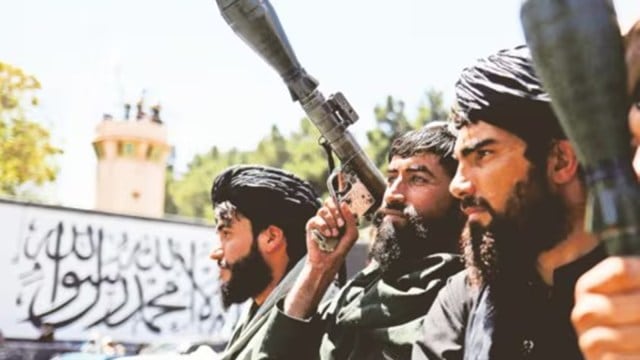
Afghanistan-Pakistan relations have hit a new low with real possibilities of an open war between the latter and its one-time protégé, the Afghan Taliban. All punts are on yet another round of Doha talks, this time between Pakistan and the Afghan Taliban, mediated by the likes of Qatar, Turkey and Saudi Arabia. Is a repeat of the February 29, 2020 “Agreement for Bringing Peace to Afghanistan”, which ended the 19-year US war in Afghanistan, possible between Islamabad and Kabul? What lessons does history offer in how to deal with the Afghan Taliban?
Punting on a heterogeneous entity like the Afghan Taliban, with its varied tribal, regional, sectarian and ideological affiliations, can be frustrating. There are intra-group rivalries amongst factions like the Quetta Shura, Peshawar Shura, the Kandahar Leadership or the Haqqani Network. The loyalties of various factions to foreign forces like Pakistan’s ISI, Al Qaeda, ISIL, or even Iran, complicate the non-monolithic conceptualisation of what is loosely called the Taliban. Prior to the fall of Kabul on August 15, 2021, differences were largely submerged in the collective effort to oust the US/NATO forces from Afghanistan. But after that purpose was achieved, the factions are no longer as seamlessly aligned.
Then-Pakistani spymaster and ISI chief, Lt Gen Faiz Hameed, had infamously dashed to Kabul after it had fallen to the Taliban militias, to ensure the presence of pro-Pakistani factions, especially the Haqqani Network. Led by Sirajuddin Haqqani (later appointed to the post of Interior Minister), Pakistani manipulations had led to some dissonance amongst the other factions like the Quetta Shura, Taliban leaders from the northern and central regions, Hafiz Mansoor group and even to the reclusive Supreme Taliban Leader, Hibatullah Akhundzada. These independent-minded forces were more Afghan-centric and did not harbour any sense of loyalty to Pakistan, beyond a point.
The Doha Agreement (2020) between the US and the Taliban office in Qatar was negotiated by the likes of Mullah Abdul Ghani Baradar, Sher Mohammad Abbas Stanikzai and other relative moderates who did not represent the majority of the Taliban hardliners. Nonetheless, as they were more media savvy and acceptable faces, they negotiated the US withdrawal from Afghanistan. Therefore, when it came to implementation and honouring of the terms of conduct of the Doha Agreement by the Taliban side, there were multiple violations. Promises like negotiation with the Ashraf Ghani Government, counterterrorism promises, intra-Afghan negotiations, reduction in violence, and societal guarantees (especially for the vulnerable sections) were mostly ignored. Very soon it wasn’t just the US that was disappointed by the reneging of the Doha Agreement by the Afghan Taliban; even Pakistan was to discover, to its surprise, that the incoming Afghan Taliban was no longer beholden to Islamabad and instead put Afghan-centricity at its core, as opposed to doing Islamabad’s bidding as Pakistan had originally imagined.
Two fundamental issues gave rise to the Afghan Taliban’s subsequent dissonance with Pakistan. Firstly, the non-acceptance of the Durand Line (hence hindering fencing efforts) as the official border, and secondly, non-action against the Tehrik-i-Taliban Pakistan (TTP) cadres based on Afghan soil, leading to frequent skirmishes at places like Torkham and Spin Boldak. Islamabad’s pressure tactics like forced deportation of Afghan refugees (over 1.7 million), launching airstrikes on supposed TTP bases and even ensuring “hits” as far as in the capital city of Kabul, did not sit well with the Afghan Taliban. They increasingly saw Pakistan’s moves as brazen interference, intimidation and an unacceptable affront to the sovereignty and dignity of the Afghan nation.
While Pakistan holds the paper advantage in terms of militaristic wherewithal vis-à-vis the combined forces across Afghanistan, it knows better than to draw them into conflict. The Taliban (both Afghan and the TTP) are past masters of asymmetric and guerrilla warfare, besides enjoying overwhelming popular support on either side of the unrecognised Durand Line. These ragtag militias that are collectively and simplistically called the Taliban had worn out the numerically and technologically superior might of superpowers like the erstwhile Soviet Union and, most recently, the US/NATO forces. Recent times have already witnessed over hundreds of Pakistani fatalities to terror attacks launched by elements across (or even within) Pakistani borders.
The odds are heavily loaded against the Pakistanis in terms of potential escalation of tensions. All known fundamentals in an armed insurgency — such as terrain, local support, human intelligence, combat experience and motivation, external sanctuaries, and even lethality of equipment — favour the TTP and other Pak-facing groups. Besides tangible factors, the history and culture of the local people have ensured that the crucial battle of “hearts and minds” will always go against Pakistan. An economically-strapped Pakistan can ill-afford the sort of military wherewithal and investments to counter threats from multiple fronts — Balochistan, Line-of-Control (against India) and the essentially lawless or under-governed area along the Durand Line.
The recent Doha engagement between Pakistan and the Taliban may have led to an immediate ceasefire, but there is little commonality of outlook that either side can invoke. The fragile peace is susceptible to many uncontrollable exigencies that could endanger the ceasefire terms, as neither side is in a position to accept restraint against the other, anymore. The leverage of the mediating powers like Qatar, Turkey or Saudi Arabia is limited given the insular, isolated and fiercely independent outlook of the Taliban leadership under Hibatullah Akhundzada.
Pakistan knows better than anyone about the genie that it has unleashed and the uncontrollable dynamics that can wreak havoc, should the same be provoked. Drawing further Afghan passions (beyond what is already there) would be suicidal. Punting on the Doha talks is clearly insufficient and unsustainable, though the only hope currently, and Pakistan knows that best.
The writer is a retired lieutenant-general and a former lieutenant-governor of the Andaman and Nicobar Islands and Puducherry